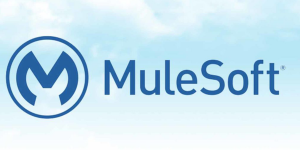 CloudHub has been built from the ground up to provide enterprises with a multi-tenant, secure, elastic, and highly available integration platform as a service (iPaaS). This document describes how the underlying mechanisms of the CloudHub platform work to achieve these goals. Manage CloudHub with the Runtime Manager console in the Anypoint Platform. You can also deploy to it directly from Anypoint Studio, via the CloudHub API or via the Anypoint Platform Command Line Interface. CloudHub includes two major components: platform services and the worker cloud. These two components and Runtime Manager work together to run your Mule application in the cloud. CloudHub is designed in such way that it can provide various features like high availability, scalability, intelligent healing, and zero downtime. Mule applications deployed in CloudHub can be easily scalable without any downtime. The Runtime Management console is very well integrated with Anypoint platform. You can use your Anypoint credentials to deploy, upload, or manage your Mule applications. You can deploy and manage your Mule application through this same console. This is also useful for monitoring the platform services. CloudHub shared the set of platform services and API includes CloudHub Insights, Alerting, logging, account management, virtual private cloud/secure data gateway, load balancing, and others.
CloudHub has been built from the ground up to provide enterprises with a multi-tenant, secure, elastic, and highly available integration platform as a service (iPaaS). This document describes how the underlying mechanisms of the CloudHub platform work to achieve these goals. Manage CloudHub with the Runtime Manager console in the Anypoint Platform. You can also deploy to it directly from Anypoint Studio, via the CloudHub API or via the Anypoint Platform Command Line Interface. CloudHub includes two major components: platform services and the worker cloud. These two components and Runtime Manager work together to run your Mule application in the cloud. CloudHub is designed in such way that it can provide various features like high availability, scalability, intelligent healing, and zero downtime. Mule applications deployed in CloudHub can be easily scalable without any downtime. The Runtime Management console is very well integrated with Anypoint platform. You can use your Anypoint credentials to deploy, upload, or manage your Mule applications. You can deploy and manage your Mule application through this same console. This is also useful for monitoring the platform services. CloudHub shared the set of platform services and API includes CloudHub Insights, Alerting, logging, account management, virtual private cloud/secure data gateway, load balancing, and others.